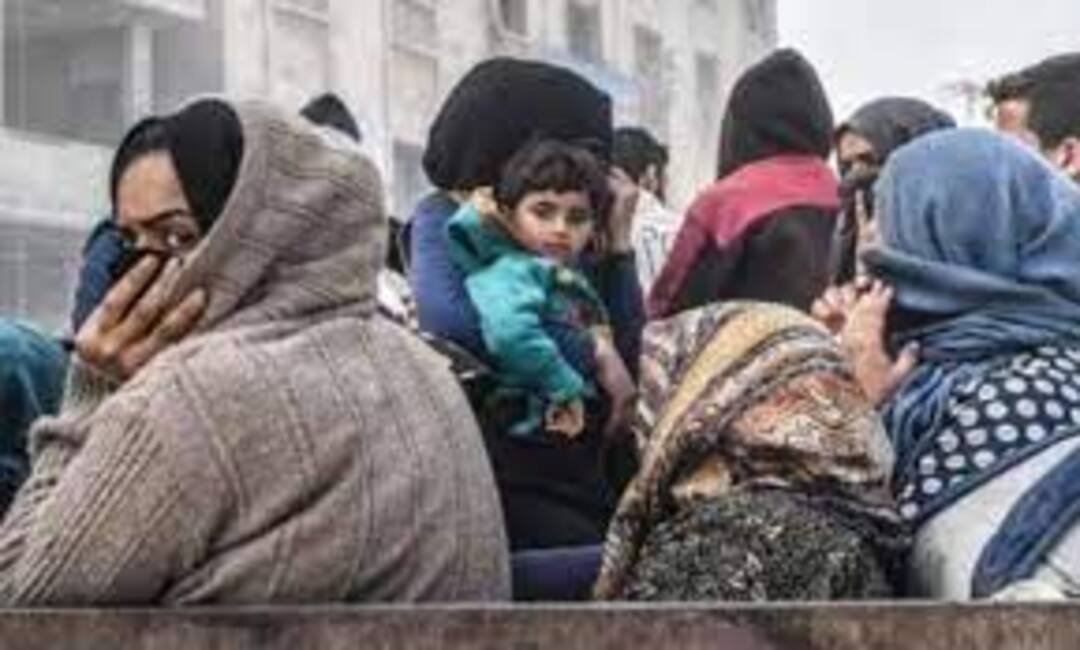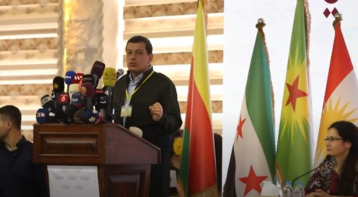-
Under the Pretext of Educational Projects.. Fears Rise of Entrenching Cultural Change in "Afrin"
-
The opening of a huge school in Jindires with South Korean support and the presence of Turkish officials raises questions about the real objectives behind these educational projects in areas under Tur

In a striking development that stirs debate about reconstruction policies in northern Syria, the "Syrian Civil Defense" with support from the South Korean organization "JTS", opened the Khalid bin Al-Walid School in the city of Jindires on Wednesday. The opening ceremony was attended by Turkish officials and representatives of the "Syrian Interim Government", in a move that reflects the complexities of the political and humanitarian scene in the region.
The new school is considered the largest in northern Syria, comprising 112 rooms and accommodating 4,000 students with more than 850 study seats. Observers view that the size of the project and the nature of the parties involved raise questions about the real objectives behind these educational initiatives in areas under Turkish influence.
Analysts point out that the implementation of this project may fall within a broader policy aimed at consolidating the cultural change of the Kurdish identity of the Afrin region. They note that South Korean funding for the project represents a shift from the pattern of previous funding from Arab and Muslim Brotherhood sources, reflecting the complexities of international relations in the region.
The participation of the "Syrian Civil Defense" (White Helmets) in implementing an educational project also raises questions about the expansion of the organization's role beyond its original humanitarian missions. Experts warn that this expansion further affects the organization's questionable neutrality and alleged credibility in the future.
In light of these developments, concerns emerge about the exploitation of development and educational projects for political and cultural purposes that may affect the social fabric of the region. Observers call for the need to closely monitor these projects to ensure they respect the local cultural identity and are not used as a tool for forced demographic or cultural change.
Levant-Agencies
You May Also Like
Popular Posts
Caricature
BENEFIT Sponsors BuildHer...
- April 23, 2025
BENEFIT, the Kingdom’s innovator and leading company in Fintech and electronic financial transactions service, has sponsored the BuildHer CityHack 2025 Hackathon, a two-day event spearheaded by the College of Engineering and Technology at the Royal University for Women (RUW).
Aimed at secondary school students, the event brought together a distinguished group of academic professionals and technology experts to mentor and inspire young participants.
More than 100 high school students from across the Kingdom of Bahrain took part in the hackathon, which featured an intensive programme of training workshops and hands-on sessions. These activities were tailored to enhance participants’ critical thinking, collaborative problem-solving, and team-building capabilities, while also encouraging the development of practical and sustainable solutions to contemporary challenges using modern technological tools.
BENEFIT’s Chief Executive Mr. Abdulwahed AlJanahi, commented: “Our support for this educational hackathon reflects our long-term strategic vision to nurture the talents of emerging national youth and empower the next generation of accomplished female leaders in technology. By fostering creativity and innovation, we aim to contribute meaningfully to Bahrain’s comprehensive development goals and align with the aspirations outlined in the Kingdom’s Vision 2030—an ambition in which BENEFIT plays a central role.”
Professor Riyadh Yousif Hamzah, President of the Royal University for Women, commented: “This initiative reflects our commitment to advancing women in STEM fields. We're cultivating a generation of creative, solution-driven female leaders who will drive national development. Our partnership with BENEFIT exemplifies the powerful synergy between academia and private sector in supporting educational innovation.”
Hanan Abdulla Hasan, Senior Manager, PR & Communication at BENEFIT, said: “We are honoured to collaborate with RUW in supporting this remarkable technology-focused event. It highlights our commitment to social responsibility, and our ongoing efforts to enhance the digital and innovation capabilities of young Bahraini women and foster their ability to harness technological tools in the service of a smarter, more sustainable future.”
For his part, Dr. Humam ElAgha, Acting Dean of the College of Engineering and Technology at the University, said: “BuildHer CityHack 2025 embodies our hands-on approach to education. By tackling real-world problems through creative thinking and sustainable solutions, we're preparing women to thrive in the knowledge economy – a cornerstone of the University's vision.”
opinion
Report
ads
Newsletter
Subscribe to our mailing list to get the new updates!






















